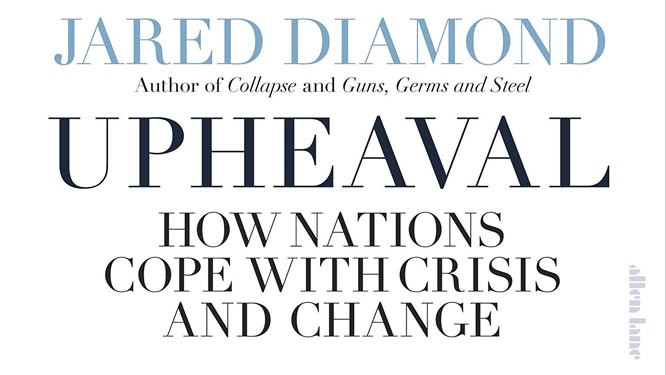
In his new book, Jared Diamond reveals how seven countries survived defining upheavals in the recent past

Jared Diamond is a man of many talents - geographer, historian, anthropologist, biologist and polyglot. This has resulted in a gamut of insights that range from describing how big businesses’ disregard for the environment is fuelling a global collapse, to enumerating factors that make sex fun.
His Pulitzer-winning Guns, Germs, and Steel argued that the Eurasian people managed to rule over vast swathes of the planet , not because of their biological supremacy, but owing to geographical head-starts. But the 1997 masterpiece, which was meant to rubbish racial supremacism, ended up being accused by certain sections of ‘racism’ and ‘environmental determinism’.
Jared Diamond is used to finding himself in a paradoxical rough. He’s not sweeping enough to capture the tribalism displayed by the global left or right. He’s against ethno-nationalism, but for the idea of nationhood, maintaining that the ‘nation-state’ is a reality that isn’t going anywhere.
His latest offering, Upheaval: How Nations Cope with Crisis and Change maintains that position. The immigrant crisis is one of the case studies in the book. It proposes checks on immigration, arguing that it’s impossible to accommodate everyone whose life would be improved by exchanging the Third World for the First. The stance is unlikely to win the author too many fans.
The foundation for the Upheaval rests on a classical realist idea: that states act in synchrony with human behaviour. The book’s core argument is that one can dissect states’ approach towards the crises they face through basic human psychology.
To put it simply, the author argues that nations deal with national crises the same way individuals deal with personal crises. Diamond’s penchant for simplistic causality provides the reader with a fascinating -if rose-tinted - lens for history.
Upheaval underlines cases of half a dozen countries and the major crises they dealt with. It emphasizes the fragility of modern democracies. The book talks up authority figures and, without scapegoating, puts the onus of responsibility for the events that take place around them on the masses.
It focuses on nations’ ability to learn from other nations, and their skill at making compromises just as they prioritize their needs and aspirations.
Upheaval provides answers for individuals trying to comprehend modern-day politics and how everyone can take ownership and participate in righting the wrongs in their states.
The book is based on case studies from six countries Diamond knows well - Finland, Chile, Indonesia, Japan, Germany and Australia - and how they dealt with their greatest crises.
Finland battled with the aftermath of its war with the Soviet Union, with the masses taking up acts "unthinkable in any democracy" including self-censorship, postponing a presidential election and forcing a presidential candidate to withdraw.
The once-stable Chile plummeted into darkness under General Pinochet’s military rule, which was initially touted to be temporary but lasted for almost two decades. Pinochet spearheaded one of the most gruesome South American totalitarian regimes, where mass killings and torture were the norm.
Upheaval juxtaposes such challenges at a national level with personal predicaments - such as losing a loved one.
Diamond holds that all crises, irrespective of their nature and magnitude, lead to a change. Recovery, he says, is the fine balance between keeping the traits that were beneficial and figuring out mechanisms that are better suited to cope with the changed circumstances.
The first step is to realize and acknowledge the fact that you are in the midst of a crisis. Once that is done, the most important thing for a nation is to make it through.
Upheaval is the author’s most blatantly political book to date, even though Jarred Diamond has reiterated on multiple occasions that he does not believe himself to be a political animal, but is interested in "a lot of things". This means that his multi-dimensional writing can be applied to a lot of things.
It would be interesting to apply Diamond’s thesis to Pakistan. The book presents cases of Chile under Pinochet, Indonesia under Suharto and Nazi Germany.
To take that path, one must first determine if Pakistan is currently in the midst of a crisis or equipping itself with tools to deal with predicaments originating in the past. In times of tabdeeli, people must figure out "how nations cope with crisis and change".
Upheaval: How Nations Cope with Crisis and Change
Author: Jared Diamond
Publisher: Random House UK
Pages: 320
Price: Rs2,095